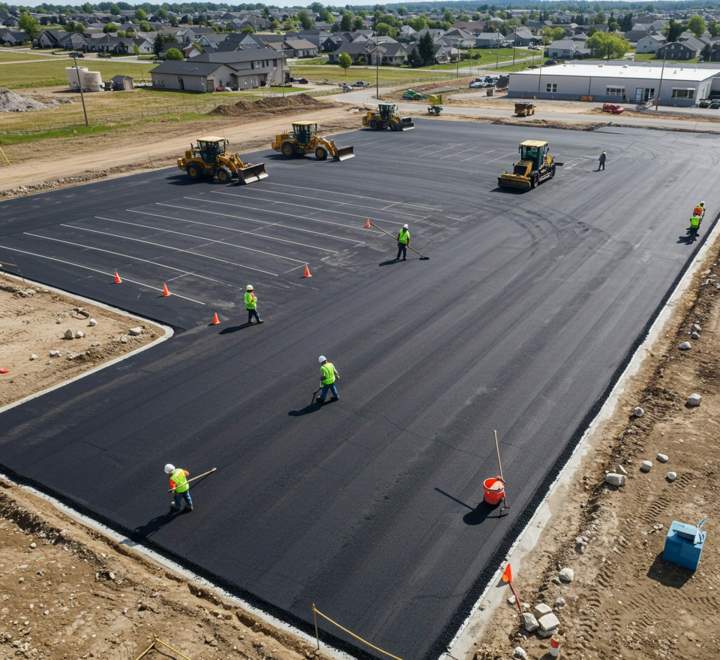Choosing the best materials for durable parking lots
Parking Lot Admin / October 21, 2025
Creating a durable parking lot requires thoughtful consideration of materials, design, and environmental conditions. Selecting the right materials can significantly enhance the longevity of a parking lot while minimizing maintenance costs. This article will explore the various materials available for parking lot construction and the factors that influence their selection.

Understanding Parking Lot Requirements
Load-Bearing Capacity
One of the primary considerations when choosing materials for a parking lot is load-bearing capacity. Parking lots must withstand the weight of vehicles, including heavy trucks and SUVs. The chosen materials should be able to distribute this weight evenly to prevent cracking and deformation.Climate Resilience
The local climate plays a crucial role in material selection. For instance, regions with heavy snowfall may require materials that can resist freeze-thaw cycles, while areas with high temperatures need materials that can endure heat without warping.Common Materials for Parking Lots
Asphalt
Asphalt is one of the most commonly used materials for parking lots due to its cost-effectiveness and quick installation.- Benefits :
- Flexibility : Asphalt can adapt to various weather conditions, making it suitable for many climates.
- Ease of Repair : Damaged asphalt can be easily patched, which prolongs the life of the parking lot.
- Smooth Surface : It provides a smooth driving surface, enhancing user experience.
- Drawbacks :
- Temperature Sensitivity : Asphalt can soften in extreme heat and may require sealing every few years to maintain its integrity.
- Environmental Concerns : The production process of asphalt can have negative environmental impacts.
Concrete
Concrete is another popular choice, especially for larger parking facilities.- Benefits :
- Longevity : Concrete has a longer lifespan than asphalt, often lasting 30 years or more with proper maintenance.
- Strength : It can support heavier loads, making it ideal for commercial and industrial applications.
- Low Maintenance : Once installed, concrete requires less frequent maintenance compared to asphalt.
- Drawbacks :
- Initial Cost : The upfront cost of concrete is typically higher than that of asphalt.
- Cracking : Without proper reinforcement and joint placement, concrete can crack over time.
Permeable Paving
Permeable paving systems, including permeable concrete and porous asphalt, are gaining popularity for their environmental benefits.- Benefits :
- Stormwater Management : These materials allow water to infiltrate the surface, reducing runoff and promoting groundwater recharge.
- Eco-Friendly : They help minimize the urban heat island effect by allowing for vegetation growth and reducing surface temperatures.
- Drawbacks :
- Cost : The installation can be more expensive than traditional materials.
- Maintenance : Permeable surfaces require regular cleaning to prevent clogging.
